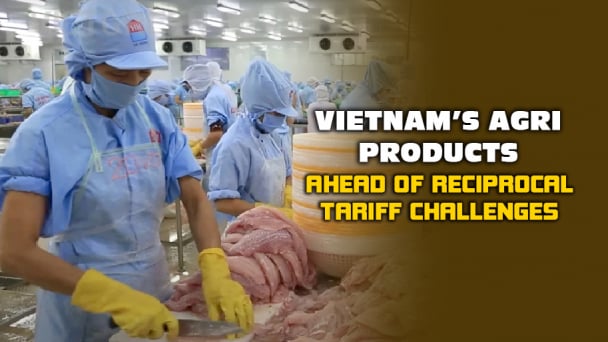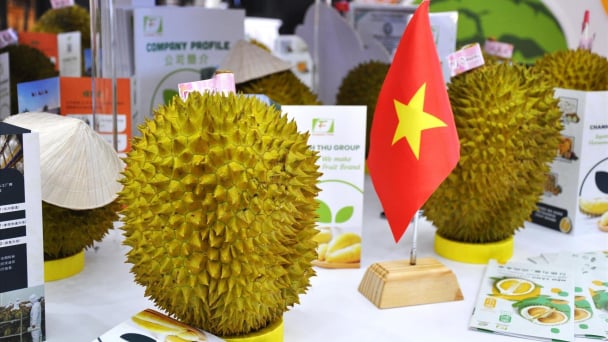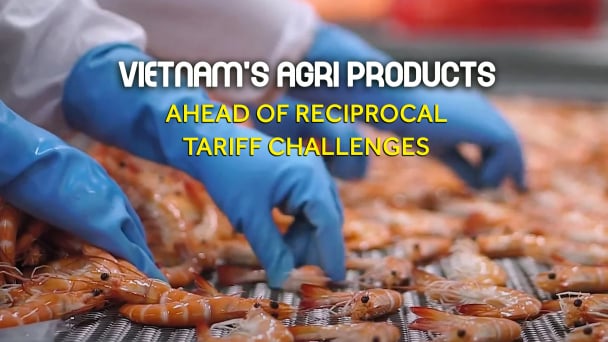May 30, 2025 | 07:18 GMT +7
May 30, 2025 | 07:18 GMT +7
Hotline: 0913.378.918
May 30, 2025 | 07:18 GMT +7
Hotline: 0913.378.918

Mr. Zhang Yu Xi, Chairman of the Board at Xinfadi Agricultural Product Distribution Center.
The Xinfadi Agricultural Product Distribution Center in Fengtai District, Beijing, China, hosted the inaugural Vietnam Fruit Festival last week. The festival's theme is "Vietnamese Fruits - Four-season delicacy"
Vietnam, situated in the eastern region of the Indochina Peninsula, boasts a distinctive coastline and a diverse and abundant geography, according to Mr. Zhang Yu Xi, Chairman of the Board at Xinfadi Agricultural Product Distribution Center. Vietnam has a rich and colorful culture, as well as a lengthy history with glorious pages. The Vietnamese people are renowned for their traditional arts and customs, which have been handed down and improved over the course of generations, resulting in the distinctive and diverse culture that we observe today.
Vietnamese agricultural products have been exported to the Chinese market in significant quantities, providing Chinese consumers with a diverse selection of tropical fruits and vegetables that satisfy their nutritional requirements.
The demand for high-quality agricultural products is substantial in Beijing, a city that has become internationalized and has a population of up to 30 million. Xinfadi is the primary supplier of fruits and vegetables to the residents of the capital, supplying up to 90% of the agricultural products produced in Beijing.
The total transaction volume of agricultural products at Xinfadi in 2023 was 15.16 million tons, with a total transaction value of 126.7 billion yuan.
The majority of agricultural products in Beijing are imported from other provinces, as the city's rate of self-sufficiency in agricultural products is extremely low.
The Chairman of Xinfadi underscored that Xinfadi annually showcases agricultural products from 46 countries and regions, and it is possible to sample cuisine from around the world by simply entering the venue.
To improve the quality control of agricultural products and actively encourage collaboration in the development and sharing of the "Belt and Road Initiative," Xinfadi has been expanding its agricultural cultivation base in Vietnam, Thailand, Laos, Myanmar, Cambodia, the Philippines, Malaysia, and other countries, encompassing a total area of 325,000 acres. The primary crops cultivated on more than 20,000 acres in Vietnam are dragon fruit, bananas, mangoes, watermelons, and purple sweet potatoes. Xinfadi will intensify its collaboration in the cultivation of durian, jackfruit, longan, passion fruit, mangosteen, and other crop varieties in the future.
Xinfadi leadership expressed their admiration for the inaugural Vietnam Fruit Festival, stating that it is a wonderful exhibition fair in Beijing that is both contemporary and significant. It is indicative of the Vietnamese people's steadfast commitment to satisfying the Chinese market's requirements. Furthermore, it vividly illustrates the friendly cooperative relationship between China and Vietnam in the agricultural sector, thereby fostering valuable opportunities for connections and exchanges between Chinese and Vietnamese agricultural businesses. This will undoubtedly increase the development of Vietnamese agricultural exports.
"We are eagerly anticipating more high-quality Vietnamese fruits and vegetables in the Chinese market, adding more vibrant flavors to the meals of Beijing residents," pointed out the Xinfadi administration.
Translated by Linh Linh

(VAN) Reciprocal tariffs are exerting pressure on U.S. exports, prompting Vietnamese firms to shift their focus to Muslim markets, Thailand, and Brazil.

(VAN) A free booth for two years at Xinfadi, Beijing's largest wholesale market, will be allocated to Vietnam's agricultural products.

(VAN) Vietnamese shrimp exporters are actively looking for alternative markets and accelerating shipments to the United States in response to the pressure of impending reciprocal tariffs. This is occurring during a temporary tariff suspension.

(VAN) The import-export turnover between Vietnam and Singapore rose amid a trade rebound, with machinery, electrical equipment, and fuels making up the majority of the transaction value.

(VAN) Director General of the General Administration of Customs of China, Ms. Sun Mai Jun, has pledged to implement measures that will ease the import process for Vietnamese agricultural products.

(VAN) Although Vietnam is still increasing its coffee exports, the industry is currently in the process of determining market strategies in response to the U.S. imposition of reciprocal tariffs.

(VAN) With rising demand in Muslim-majority countries, Halal certification is becoming a critical passport for Vietnamese agricultural products seeking sustainable market access and consumer trust in the Middle East and Africa.